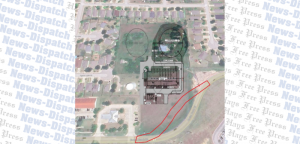By Rafael Marquez
In an attempt to remove politics from the decision making process, the Kyle City Council decided to kill a new ordinance regulating traffic control devices, such as stop signs, by a 4-1 vote earlier this month.
Kyle council instead instructed city staff to come up with clear guidance for studying citizen requested stop signs that removes the council from the decision process, but allows for citizens to appeal decisions where the traffic control device is “not warranted.”
The proposal would have required applicants to canvas and obtain support from 2/3rds of all residences and businesses within 1,000 feet of the intersection of a proposed traffic control device. The purpose behind the canvassing is to show the council that there is neighborhood support for the signage.
Kyle Chief of Police Jeff Barnett said that the study to determine whether a new traffic control device is warranted costs the city $851.62 per new device.
The cost covers the work performed by the city secretary, Public Works, City Engineering and Police Departments, who all assist with warrant studies.
Based on this cost, Kyle’s proposed ordinance called for the city to ask applicants for a deposit of $200 to $800 that would be refunded if a traffic control device is warranted.
The deposit would be forfeited if the traffic control device were found to be unwarranted. Council would have had the ability to override the decision and proceed with installing the traffic control device.
Council brought up the ordinance after expressing concern over the number of stop sign requests by area neighborhoods.
“Our message should be, ‘we do not want unwarranted stop signs,’” Mayor Todd Webster said on the dais.
Webster, however, expressed concern that council would still be able “to do unwarranted stop signs” based on politics.
Council member Travis Mitchell expressed concern about people thinking that since they paid the deposit, they should get the traffic control device.
Mitchell also expressed concern that the council should not be in the position to override the city staff’s decision that a traffic control device is not warranted.










